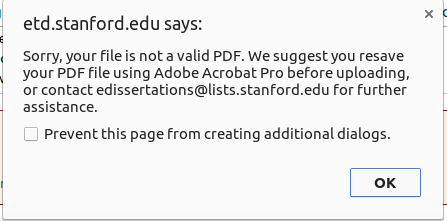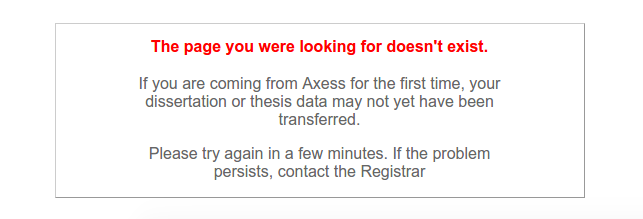I recently submit my completed thesis (cue albatross soaring, egg hatching, sunset roaring), but along the way I wanted a simple way to turn it into a website. I did this for fun, but it proved to be useful because my advisor wanted some of the text and didn’t want to deal with LaTeX. I used Overleaf because it had a nice Stanford template, and while it still pales in comparison to the commenting functionality that Google Docs offers, it seems to be the best currently available collaborative, template-based, online LaTeX editor. If you are familiar with it, you also know that you have a few options for exporting your documents. You can of course export code (meaning .tex files for text, and .bib for something like a bibliography, and .sty for styles (and these files are zipped up), or you can have Overleaf compile it for you and download as PDF.
Generating a site
The task at hand is to convert something in LaTeX to HTML. If you’ve used LaTeX before, you know that there are already tools for that (hdlatex and docs). The hard part in this process was really just installing dependencies, a task that Docker is well suited for. Thus, I generated a Docker image that extracts files from the Overleaf zip, runs an hdlatex command to generate a static version of the document with appropriate links, and then you can push the static files to your Github pages, and you’re done! I have complete instructions in the README, and you can see the final generated site. It’s nothing special, basically just white bread that could use some improving upon, but it meets it’s need for now. The one tiny feature is that you can specify the Google Font that you want by changing one line in generate.sh (default is Source Serif Pro):
docker exec $CONTAINER_ID python /code/generate.py "Space Mono"
Note that “Source Mono” is provided as a command line argument, and nothing is specified in the current file to default to Source Serif Pro. Here is a look at the final output with Source Serif Pro:

Advice for Future Students
The entire thesis process wasn’t really as bad as many people make it out to be. Here are some pointers, for those in the process of or not yet started writing their theses.
- Choose a simple, well-scoped project. Sure, you could start your dream work now, but it will be a lot easier to complete a well defined project, nail your PhD, and then save the world after. I didn’t even start the work that became my thesis until about a year and a half before the end of graduate school, so don’t panic if you feel like you are running out of time.
- Early in graduate school, focus on papers. The reason is that you literally can have a paper be an entire chapter, and boum there alone you’ve banged out 20-30 pages! Likely you will want to rewrite some of the content to have a different organization and style, but the meat is high quality. Having published work in a thesis is a +1 for the committee because it makes it easy for them to consider the work valid.
- Start with an outline, and write a story around it. The biggest “new writing” I had to do for mine was an introduction with sufficient background and meat to tie all the work that I had done together. Be prepared to change this story, depending on feedback from your committee. I had started with a theme of “reproducible science,” but ultimately finished with a more niche, focused project.
- For the love of all that is good, don’t put your thesis into LaTeX until AFTER it’s been edited, reviewed, and you’ve defended, made changes, and then have had your reading committee edit it again. I made the mistake of having everything ready to go for my defense, and going through another round of edits was a nightmare afterward. Whatever you do, there is going to be a big chunk of time that must be devoted for converting a Google Doc into LaTeX. I chose to do it earlier, but the cost of that is something that is harder to change later. If I did this again, I would have just done this final step when it was intended for, at the end!
- Most importantly, graduate school isn’t about a thesis. Have fun, take risks, and spend much more time doing those other things. The thesis I finished, to be completely honest, is pretty niche, dry, and might only be of interest to a few people in the world. The real richness in graduate school, for me, was everything but the thesis! I wrote a poem about this a few months ago for a talk, and it seems appropriate to share it here:
I don't mean to be facetious,
but graduate school is not about a thesis.
To be tenacious, tangible, and thoughtful,
for inspired idea you must be watchful.
The most interesting things you might miss
because they can come with a scent of risk.
In this talk I will tell a story,
of my thinking throughout this journey.
I will try to convince you, but perhaps not
that much more can be learned and sought
if in your work you are not complacent,
if you do not rely on others for incent.
When you steer away from expectation,
your little car might turn into innovation.
Graduate school between the lines,
has hidden neither equation nor citation.
It may come with a surprise -
it's not about the dissertation.

Uploading Warnings
A quick warning - the downloaded PDF wasn’t considered by the Stanford online Axess portal to be a “valid PDF”:

and before you lose your earlobes, know that if you open the PDF in any official Adobe Reader (I used an old version of Adobe Reader on a Windows machine) and save it again, the upload will work seamlessly! Also don’t panic when you first try to do this, period, and see this message:

As the message says, if you come back in 5-10 minutes the page will exist!
Suggested Citation:
Sochat, Vanessa. "Thesis Dump." @vsoch (blog), 21 Aug 2016, https://vsoch.github.io/2016/thesis/ (accessed 03 Jan 26).